
- Home
- DescriptionNews
Health sector must address climate resilience
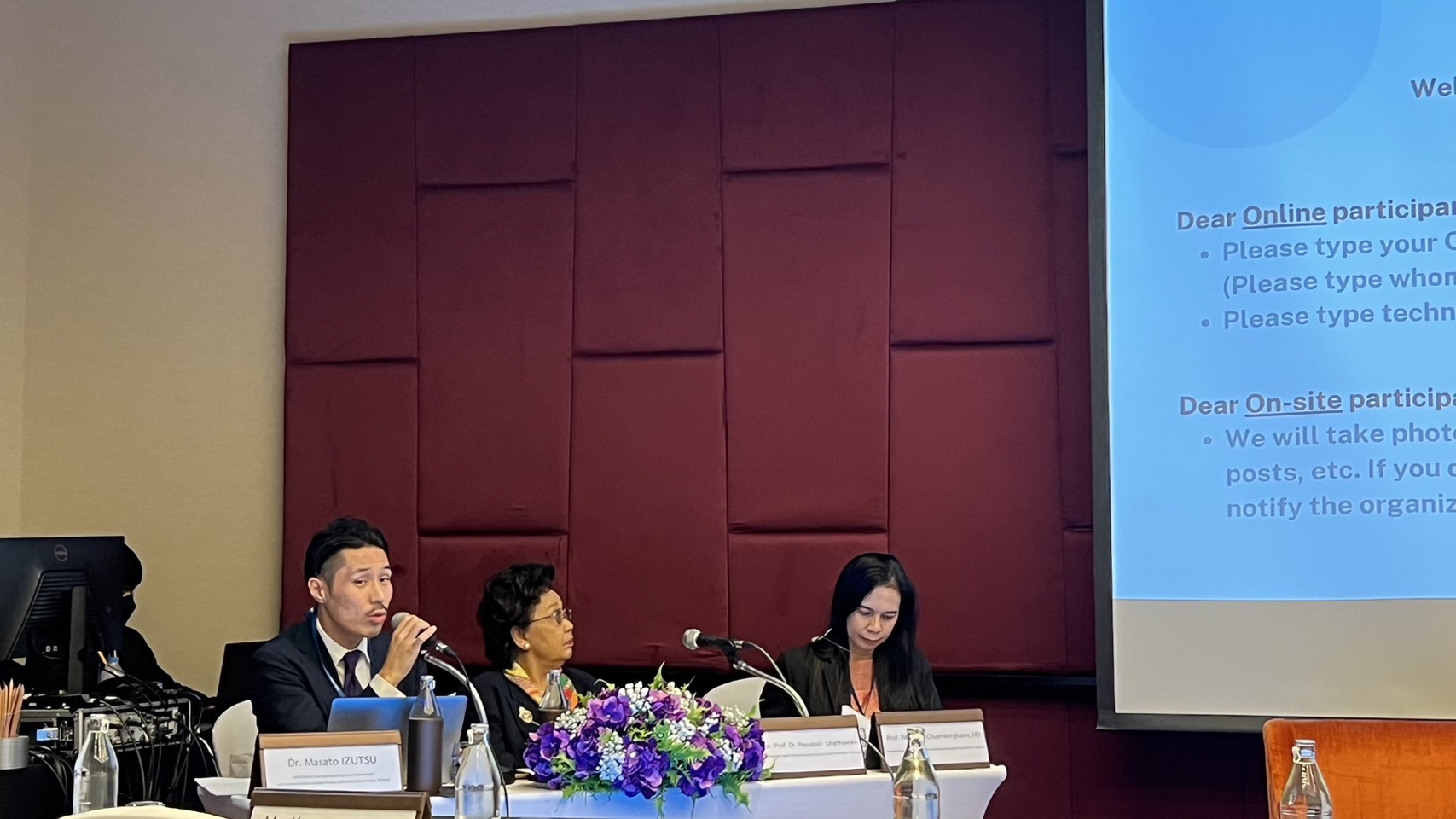
Health sector must address climate resilience
Actions and measures to create climate resilience are urgently needed in all areas of the health sector — from addressing environmental health in medical education and encouraging health facilities to shift to clean energy, to enhancing emergency preparedness for climate disasters.
The need to incorporate climate change issues into health policy, especially strategy to prepare health workforce for protecting population and health from climate change, was discussed during the side meeting of the Prince Mahidol Award Conference 2023 organized at Centara Grand and Bangkok Convention Center in Bangkok.
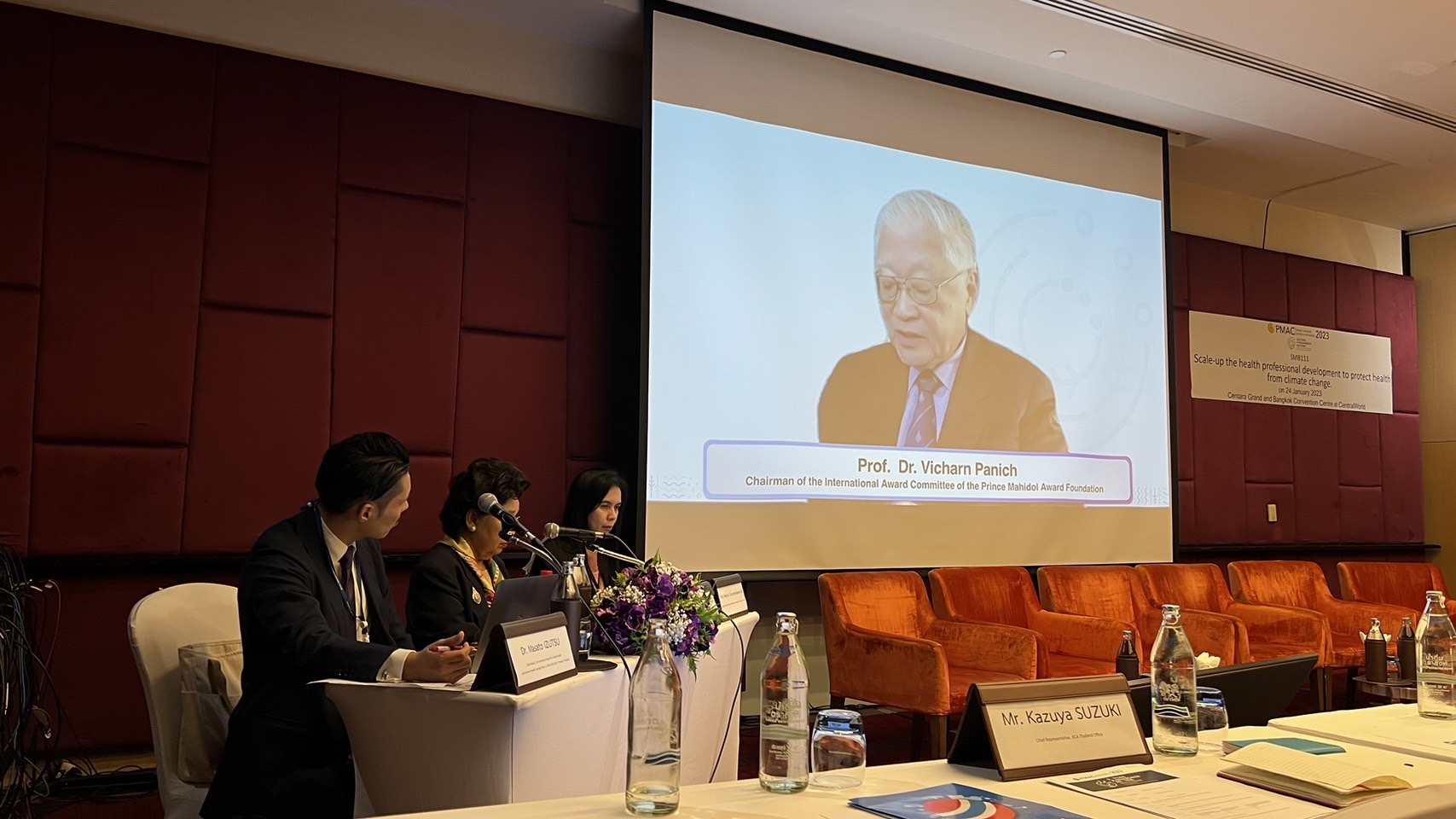
Held on 24 January, the side meeting “Scale-up the health professional development to protect health from climate change” was co-organized by Thailand and Japan through the Partnership Project for Global Health and Universal Health Coverage Phase 2 (GLO+UHC), Ministry of Public Health (MOPH), National Health Security Office (NHSO),National Health Professional Education Foundation (NHPE Foundation),
The Partnership Project for Global Health and Universal Health Coverage Phase 2 and Japan International Cooperation Agency (JICA).
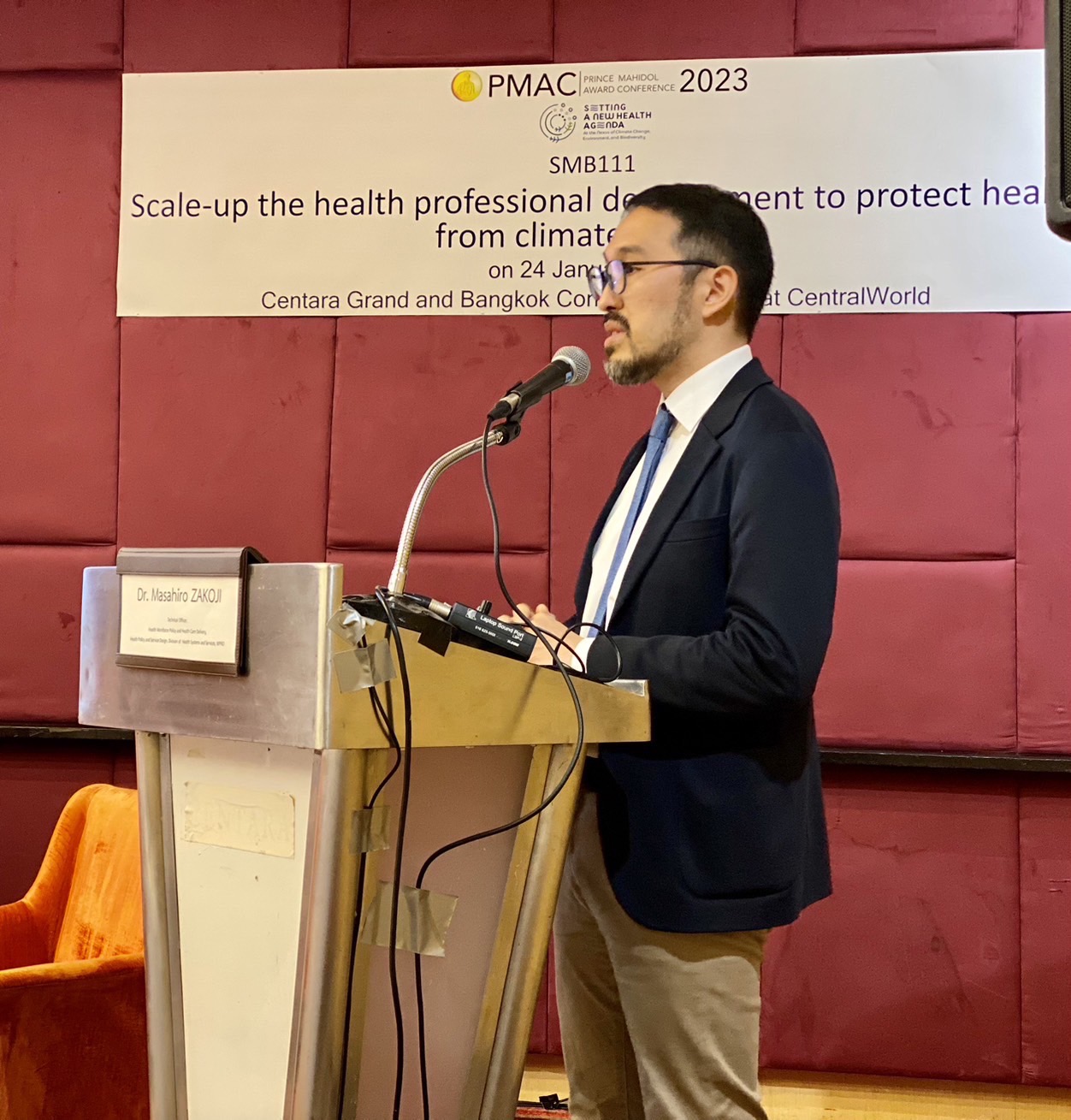
Dr Diarmid Campbell-Lendrum, Head of the World Health Organization (WHO)’s Climate Change and Health unit, said during the meeting that climate change had been often neglected in the health sector.
It should be put as a priority, especially in the area of health promotion and disease prevention, because health is affected by climate change and the other way around, he said.
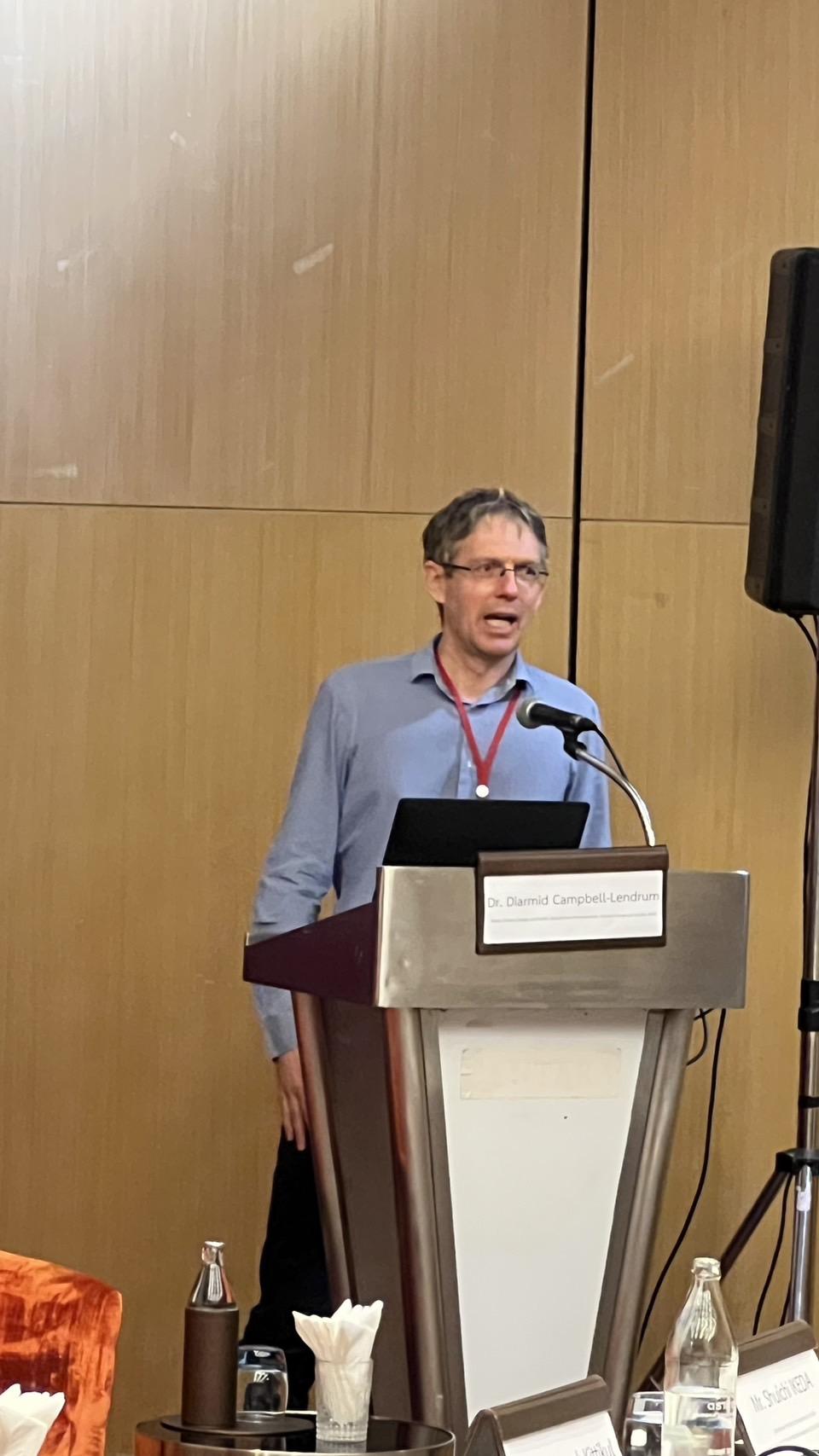
The healthcare sector contributes to 4.4% of the world’s greenhouse gas emissions, equivalent to emissions from over 500 coal- and gas-fired power plants. A large share of emissions comes from supply chain procurement.
Due to this fact, Dr Diarmid said that health professionals had played a big role in building the world’s climate resilience. They can be strong voices in the fight against climate change as they are one of the most trusted professions.
WHO has identified the three main roles of health professionals on the path to a sustainable future — protecting people from the impact of climate change, strengthening the climate resilience of the health system, and healthcare on the low-carbon path.
These are translated into actions like adding climate resilience into each function of the health system, increasing climate awareness of the health workforce, improving the effectiveness of surveillance systems, cutting carbon emissions and adopting clean energy in health facilities.
Preparing health workforce
Dr Masahiro Zakoji, technical officer of WHO’s Western Pacific Regional Office, said during the meeting that health workforces need capacity building to improve the level of climate readiness.
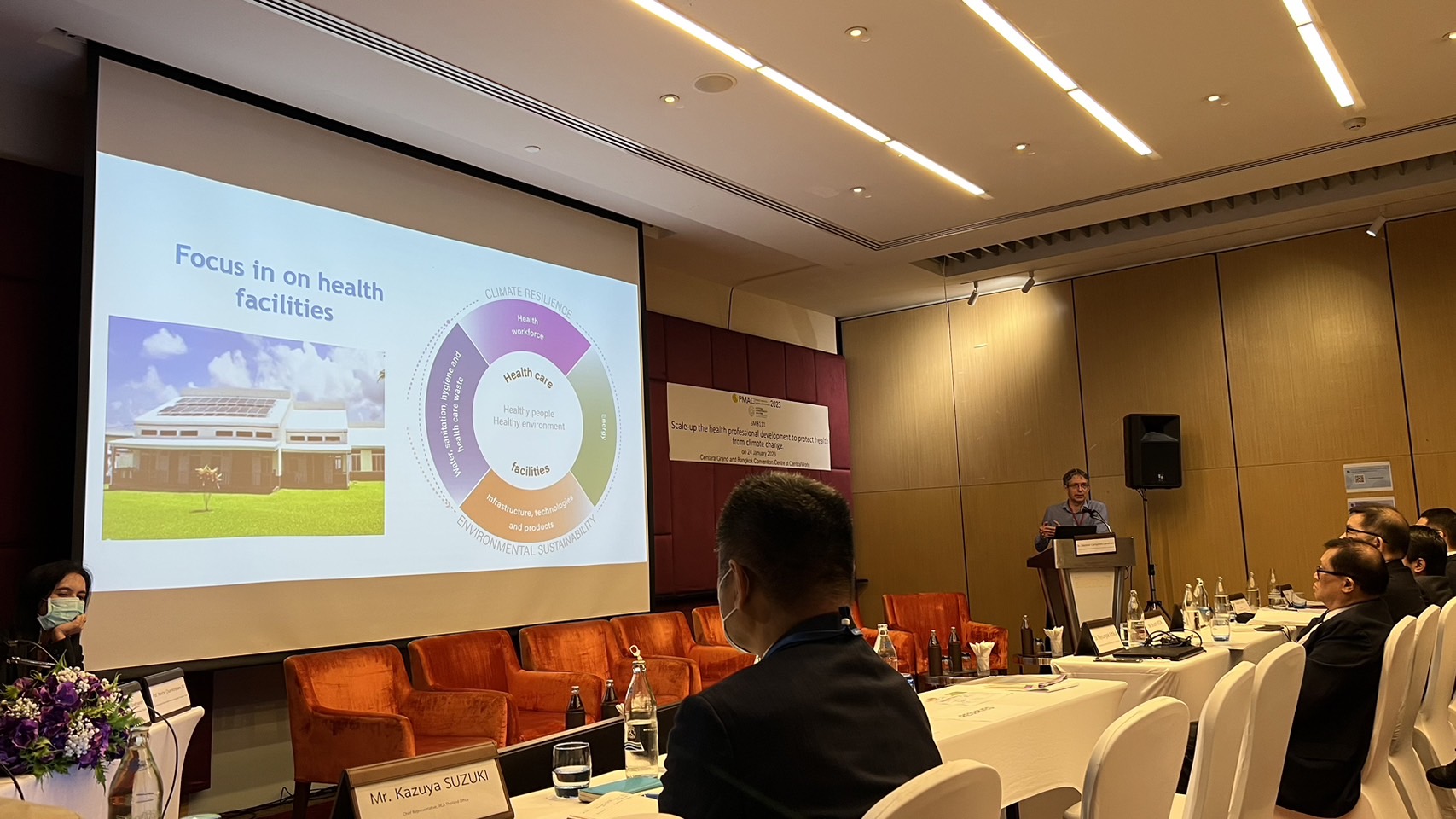
WHO reported in 2021 that 42% of 89 countries had said that some ministry of health personnel received training in health and climate change within two years before the survey conduction.
But the gap remains in agreeing on core competencies and development strategies that lead to effective climate preparedness said Dr Zakoji.
There is currently no explicit guidance for human resources for health and climate change.
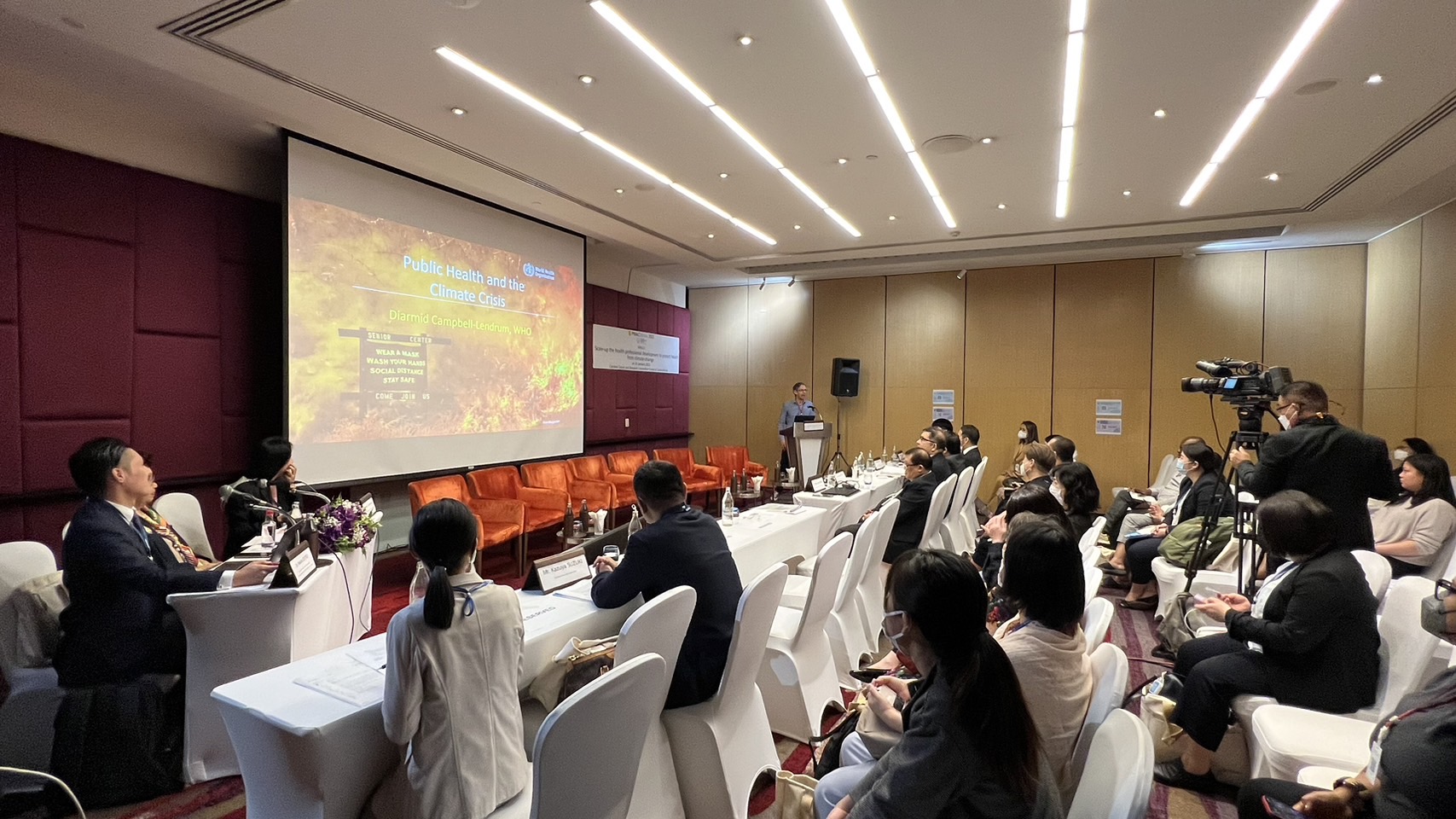
WHO aims for coming up with a list of competencies needed in capacity building of the health workforce.
Climate change will likely be included in emergency preparedness and response components and will be mainstreamed in all health programs.
Dr Renzo Guinto, inaugural director of the Planetary and Global Health Program, St Luke’s Medical Center College of Medicines in the Philippines, suggested that a new form of training and education is needed to tackle climate change.
He referred to “planetary health” — which emphasizes the interconnection of human health and all life on earth — as the transdisciplinary field that can prepare the next generation of health professionals, who must care for patients and the planets.
St Luke’s Medical Center College of Medicines, where Dr Guinto teaches, has launched the planetary and global health program that focuses on research development, education opportunities for the health workforce and the general public, and policy influencing and advocacy on climate change and health.
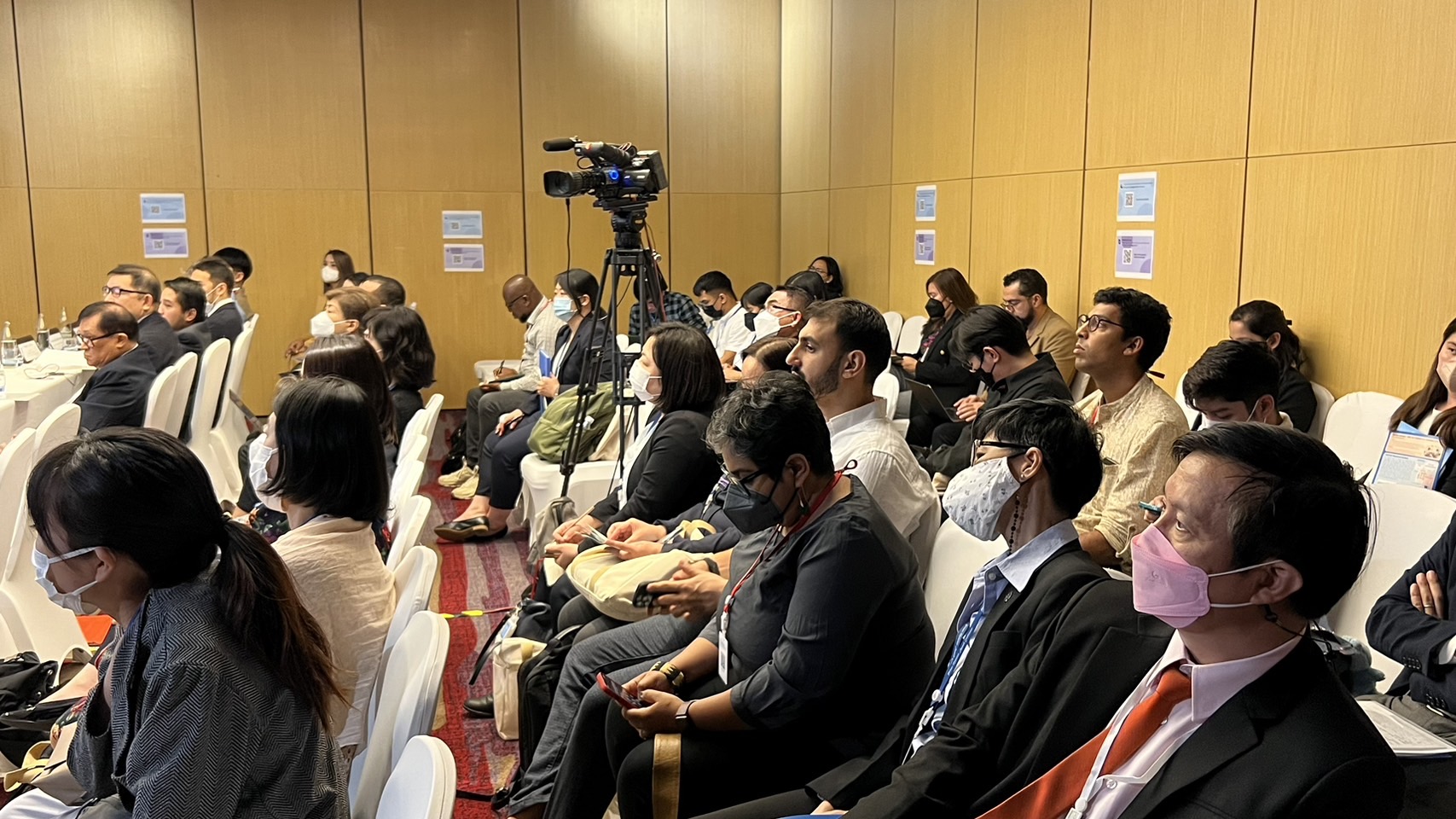
To expand this field, the challenges remain on how to incorporate the multidisciplinary fields into the main curriculum of health professional education while solving the limited number of trained teachers and materials.
But there are also a lot of opportunities, said Dr Guinto. There is a growing volume of knowledge in the field, increasing demand from students and young people, availability of digital technology, and potential international collaboration that drives planetary health.
Disaster management
Shuichi Ikeda, Chief Advisor of Project for Strengthening the ASEAN Regional Capacity on Disaster Health Management (ARCH) under the Japan International Cooperation Agency (JICA), said that Southeast Asian countries had shown political commitment to addressing disaster management in their health policy.
In 2017, the countries' leaders joined hands to adopt the declaration on disaster health management at the ASEAN summit in the Philippines.
This will strengthen collaboration and actions that prevent and mitigate climate-related disasters.
Southeast Asia had been a hotspot for climate-related disasters.
The 2013 Typhoon Haiyan is just one of many examples that demonstrate the impact of climate change and display the likelihood of increasing social and economic loss if the world fails to limit the global temperature.
Dr Payoungsak Kittikul, the Environmental Expert for Global Manufacturing Knowledge of Chevron USA, highlighted air pollution as one of the climate-related disasters that should not be overlooked.
Air pollution is originated from the combustion of fossil fuels, which produce fine particular matter known as PM2.5.
.jpg)
It can penetrate the human respiratory system and undermine health outcomes by causing mental health, chronic diseases, and premature death.
The symptoms associated with air pollution include lung dysfunction, chronic bronchitis, irregular heartbeat and heart attack.
In 2016, it was estimated that over 33,000 deaths in Thailand were associated with air pollution.
One study suggests that a 20% reduction in air pollution could prevent up to 25% of unnecessary deaths each year.

